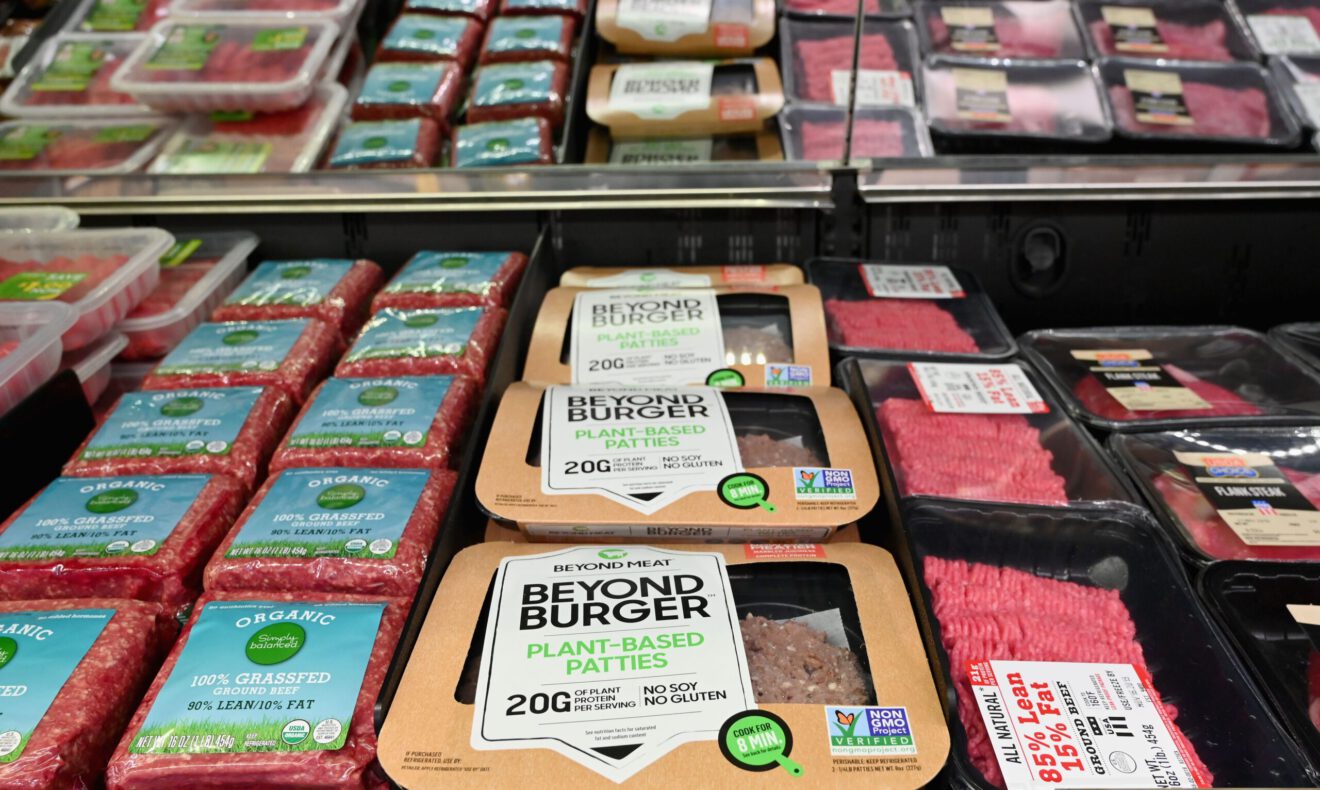It might seem hard to remember now, but 2019 brought a slew of new plant-based products in response to growing demand. A report released earlier this year by the Good Food Institute offers a deep dive into that growth.
The Good Food Institute’s second State of the Plant-based Food Industry report covers 2019 and shows the progress the industry was making before the pandemic hit and sped up retail sales.
Retail sales of plant-based products grew 11% last year, compared to a 2% increase in overall food sales, according to the 74-page GFI report, fueled by both growing demand and faster roll outs of new products.
The report covers plant-based foods that are direct replacements for animal-based meat, dairy and eggs. In the US, 143 of the companies making those products won $1.73 billion from investors in 2019, led by Impossible Foods which raised $300 million in a Series E round and Beyond Meat, whose initial public stock offering raised nearly the same amount.
Both brands were in the spotlight often last year as new deals for retail products and restaurant partnerships were announced, including Burger King’s launch of the Impossible Whopper. More recently, this year, the brands have continued to grow and roll out new products, such as Beyond’s launch this month of the Cookout Classic value pack. The retail product features 10 Beyond Burgers for a suggested retail price of $15.99.
Impossible and Beyond have become leading plant-based meat brands in recent years, but the report highlights the strides made by many industry players in 2019.
Plant-based milk paved the way
Six of the companies on the list of top 10 ventures ranked by capital raised were plant-based dairy brands, starting with Nutpods which raised $33.6 million. Ripple Foods, which makes milk and other dairy alternatives using a pea protein base raised $11.9 million, and Kite Hill, NuMilk, Mooala and Koia also made the list.
Plant-based milk has been something of a bellwether for the industry. The category, which includes alternatives like soy, almond and oat milks as well as newer options like Ripple’s pea protein based milk, hit $2 billion last year and accounted for 14% of the US milk market, the report says. Forty-one percent of US households now buy plant-based milk.
The plant-based dairy category continues to grow as companies create new milk, ice cream, yogurt and cheese alternatives, and the plant-based meat segment seems to be following a similar growth path, the report points out.
What’s next for plant-based meat?
Last year, plant-based meat accounted for just 1% of the total meat category. If its trajectory follows plant-based dairy and it ultimately grows to a similar market share, that share would represent about $37.8 billion in US sales, out of a total meat market of $270 billion, the report says.
Market share grows both by consumers spending more on existing products and trying the new ones companies roll out.
Last year brought a slew of new products from companies of all sizes and stages as companies debuted more meat-like options. LightLife unveiled a new line of plant-based burgers, sausages and ground beef-like products. Kellogg’s-owned MorningStar Farms announced plans for a new line dubbed Incogmeato and Nestle-owned Sweet Earth introduced the Awesome Burger.
The US isn’t just a fast growing market for sales of plant-based alternatives, it’s also one of the top seven countries for innovation in the industry, the report says. The UK, Canada, Germany, the Netherlands, Brazil and Israel round out the list.
In Brazil, much of the development of new plant-based products has come from established meat companies including JBS and Marfrig. In contrast, much of Israel’s growth has come through the development of accelerators, incubators and other shared spaces that lend themselves to collaboration.
“Given that much of modern food is a result of technology, it is not surprising that countries with a history of technological innovation have been among the first to house robust innovation ecosystems for plant-based meat, eggs, and dairy,” the report says.
Even before the pandemic spurred higher sales of plant-based foods, the forecast called for further acceleration of demand and new product debuts. Specifically, companies were expected to move beyond burgers to explore other plant-based meat categories including chicken, sausage and seafood alternative, the report says.
There’s evidence that the coronavirus outbreak hasn’t slowed development of new products, and in some cases it may have hastened it. Plant-based chicken nugget maker Rebellyous Foods was focused on foodservice channels but sped development of its first products for retail when the pandemic stalled sales to restaurants and school systems.
Impossible Foods has made significant investments to develop new plant-based pork products, and this week the company announced plans to make its plant-based sausage available to all restaurants that want to put it on the menu.
The report concludes on an optimistic note, predicting that plant-based players will continue to invest in both new product development and expansion of production capacity to feed growing demand and drive down prices.
“Even though 2019 was the best year for plant-based food so far, we expect 2020 to be more successful yet,” the report says.
Related stories:
- How plant-based food makers have adjusted to the pandemic
- Familiar formats can boost appeal of plant-forward meals
- Industry rises to cater to home baking trend
If you enjoyed this article, you can sign up for Consumer Brands SmartBrief to get news like this in your inbox. For even more great news content, sign up for any of SmartBrief’s 275+ free email newsletters today, free.
